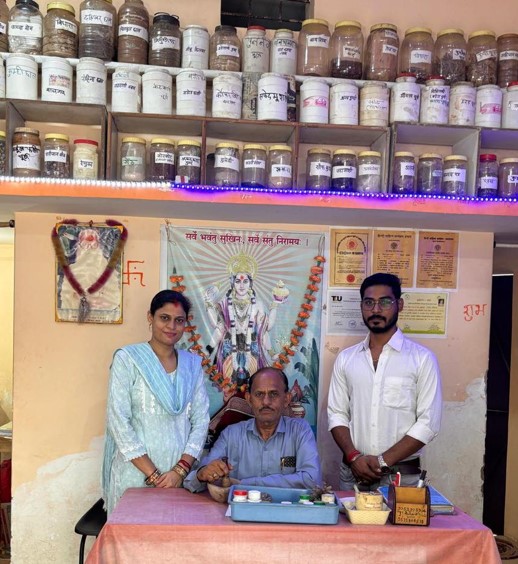A series of sharing inspiring stories of Traditional Community Healthcare Providers who have engaged with TDU.

Dr Samira Agnihotri
The overarching philosophy of Samira Agnihotri's research is ‘listening ecology,’ which aims to draw attention to diverse voices – human and more-than-human, and in doing so, encourage people to listen more -- to the sounds of nature around them, and to each other. Her work crosses disciplinary boundaries, from birdsong and bioacoustics to anthropology and linguistics, and is embedded in the eco-cultural landscape of the Biligiri Rangan Hills, where she has worked since 2004 in collaboration with the Solega people.
Ongoing Projects / Research
- Principal Investigator, “Building Capacity for Coexistence: The Coexistence Fellowship Programme” funded by the British Asian Trust
- Programme Coordinator, “ಆದಿ: ಹಳೆ ಗೇನಕ ಹೊಸ ಆದಿ (Aadhi: new paths to old ways)” https://www.thehindu.com/society/international-mother-language-day-karnataka-soliga-community-language-chart-forest-sounds-tribal-people/article67857097.ece, funded by Rainmatter Foundation
- Consultant, “Indigenous co-management of Lantana-invaded habitats to restore coexistence” at ATREE
Selected Publications
• Agnihotri, S., & Si, A. (2012). Solega ethno-ornithology. Journal of Ethnobiology, 32(2), 185–211
• Agnihotri, S., Sundeep, P., Seelamantula, C. S., & Balakrishnan, R. (2014). Quantifying vocal mimicry in the greater racket-tailed drongo: a comparison of automated methods and human assessment. PloS One, 9(3), e89540
• Agnihotri, S., Kethegowda M., & Jadeswamy (2020). Do racket-tailed drongos make tree-guards for their nest trees? Behaviour https://doi.org/10.1163/1568539X-bja10043
• Agnihotri, S., Madegowda, C., & Si, A. (2021). Tiger becomes termite hill: Soliga/Solega perceptions of wildlife interactions and ecological change. Frontiers in Conservation Science, 2 (24). https://doi.org/10.3389/fcosc.2021.691900
• https://science.thewire.in/environment/call-to-decolonise-ecology-conservation-field-research/
Awards / Memberships
Deccan Herald Changemaker in 2023: https://23in23.deccanherald.com/samira-agnihotri


.jpg)
.png)